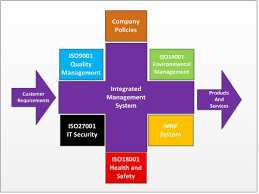Network Video Recorder (NVR) for CCTV: Enhancing Security Monitoring
Network Video Recorder (NVR) systems have revolutionized the way we monitor and record video footage in closed-circuit television (CCTV) setups. These advanced devices offer a host of features that significantly enhance security monitoring capabilities in various settings, from homes and small businesses to large commercial establishments and public spaces.
One of the key advantages of NVR systems is their ability to capture high-quality digital video footage from IP cameras. Unlike traditional analog CCTV systems that require separate cabling for video and power, NVR systems utilize a single network cable for both data transmission and power supply, simplifying installation and reducing overall costs.
Furthermore, NVRs offer greater flexibility in terms of scalability and storage capacity. Users can easily add additional IP cameras to expand their surveillance coverage without the need for complex rewiring. With support for multiple channels, NVR systems can accommodate a large number of cameras, providing comprehensive monitoring capabilities for enhanced security.
In addition to real-time video recording, NVRs offer advanced features such as motion detection, scheduled recording, and remote access via mobile devices or web browsers. Users can conveniently view live or recorded footage from anywhere with an internet connection, enabling remote monitoring and management of CCTV systems.
Security professionals appreciate the robust security features offered by NVR systems, including data encryption, user authentication, and secure remote access protocols. These measures help protect sensitive video data from unauthorized access or tampering, ensuring the integrity and confidentiality of surveillance recordings.
Overall, NVR systems have become indispensable tools for modern security applications due to their versatility, scalability, and advanced features. Whether used for residential surveillance, commercial security, or public safety monitoring, NVR-based CCTV solutions provide reliable and effective video surveillance capabilities that help deter crime, enhance situational awareness, and ensure peace of mind for users.
“Exploring NVR Technology in CCTV Surveillance”
“Comparing IP Cameras and NVR Systems: What You Need to Know”
4. “NVR vs DVR
Why use NVR in CCTV?
Using a Network Video Recorder (NVR) in CCTV systems offers numerous benefits that make it a preferred choice for security monitoring. NVRs provide high-quality digital video recording from IP cameras, simplifying installation with single-network cable setup for data transmission and power supply. The scalability of NVR systems allows for easy expansion by adding more IP cameras without complex rewiring. Advanced features like motion detection, scheduled recording, and remote access enhance surveillance capabilities, enabling users to monitor their premises from anywhere. With robust security measures such as data encryption and secure remote access protocols, NVRs ensure the integrity and confidentiality of surveillance footage, making them essential for modern security applications.
What is NVR in CCTV?
What is NVR in CCTV?
A Network Video Recorder (NVR) in the context of Closed-Circuit Television (CCTV) systems is a specialized device that is designed to record and store digital video footage from IP cameras. Unlike traditional DVRs that work with analog cameras, NVRs are compatible with IP cameras, offering higher resolution video quality and more advanced features. NVRs play a crucial role in modern surveillance setups by providing a centralized platform for managing and storing video recordings, as well as enabling remote access and monitoring capabilities for enhanced security surveillance.
What is IP vs NVR camera?
When comparing IP cameras to NVR cameras, it’s essential to understand the distinction between the two. IP cameras refer to the type of surveillance cameras that capture and transmit video data over an internet protocol network. On the other hand, NVR cameras are connected to a Network Video Recorder (NVR), which is a specialized device used for recording, storing, and managing video footage from IP cameras. In essence, IP cameras are the actual surveillance devices that capture video, while NVR cameras are part of a comprehensive system that includes both the cameras and the recording equipment. The integration of IP cameras with NVR systems offers advanced features such as remote access, centralized management, and scalability for enhanced security monitoring capabilities.
What is better NVR or DVR?
When comparing NVR (Network Video Recorder) and DVR (Digital Video Recorder) for CCTV systems, the choice between the two often depends on specific requirements and preferences. NVRs are generally considered superior to DVRs in terms of video quality, scalability, and flexibility. NVRs support IP cameras that provide higher resolution and better image clarity compared to analog cameras typically used with DVRs. Additionally, NVR systems offer easier integration with existing network infrastructure, remote access capabilities, and advanced features such as motion detection and intelligent analytics. On the other hand, DVRs may be more cost-effective for smaller installations or legacy analog camera setups. Ultimately, the decision between NVR and DVR should be based on factors like budget, system complexity, desired features, and future scalability needs.


